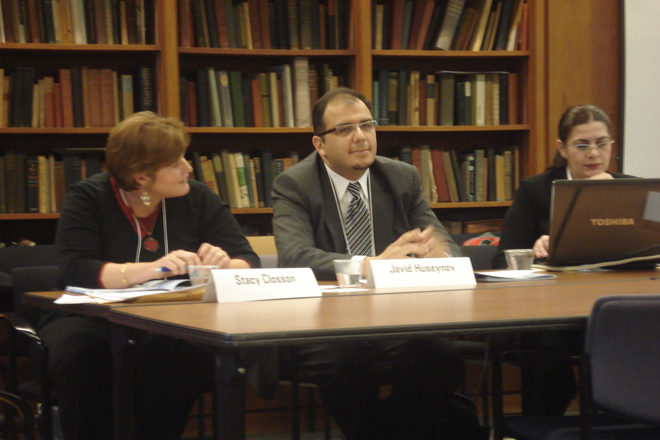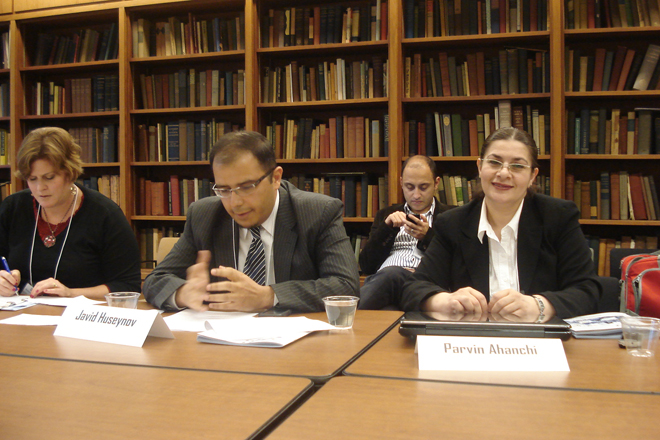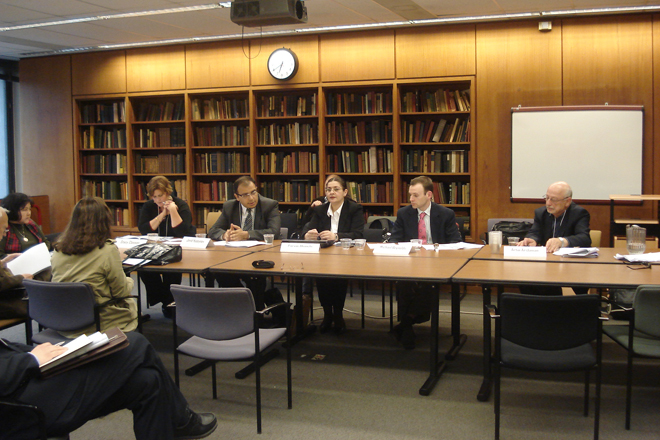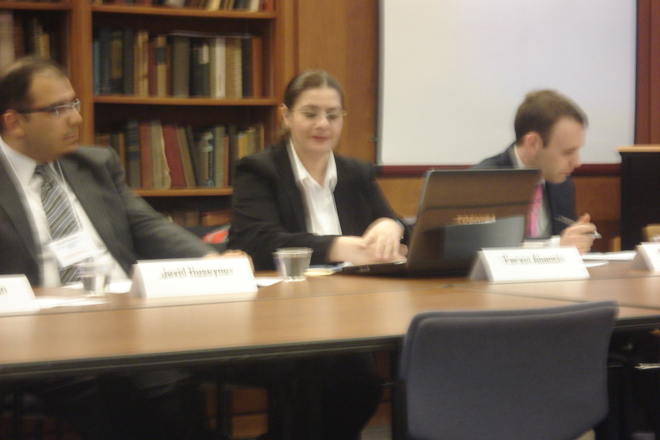Azerbaijan, Baku, 17 April /Trend, E.Tariverdiyeva/
Director General of Azerbaijani-American Council (AAC), Dr. Javid Huseynov, delivered a report at the 15th Annual World Convention of the Association for the Study of Nationalities, AAS said in press release.
In his speech, Dr. Huseyinov described the historical process of formation of the Azerbaijani identity, beginning from the Atropatena and Caucasian Albania until the establishment of Azerbaijan Democratic Republic in 1918, and later in Soviet and post-Soviet periods, the press release said.
Citing a reference from western sources about the existence of a single independent state called Azerbaijan on the territory from Derbent to Hamadan during the governance of Atabeys and Gara Goyunlu in 12th and 15th centuries, the author of the report dispelled the myth of the Armenian propagandists that the Azerbaijani identity as though appeared in the 20th century.
In his speech, Huseynov also raised the fact of extermination of about 12,000 Azerbaijanis in Baku by the militias of Bolshevist Council and the Armenian Revolutionary Federation (Dashnak Party) in March 1918. In support of his argument on the Azerbaijani genocide, the author cited an article of the New York Times in 1920, which specifies the actual number of Azerbaijanis who were killed in four days, from March 30 to April 3, 1918.
The 15th Annual World Convention of the Association for the Study of Nationalities took place at Columbia University (New York) from 15 to 17 April. The conference brings together academic experts from around the world in the field of history, conflict studies, political science and social sciences in general. Theme of the conference traditionally only affects the regions of Eastern Europe, Caucasus, Central Asia, Russia and Turkey.












